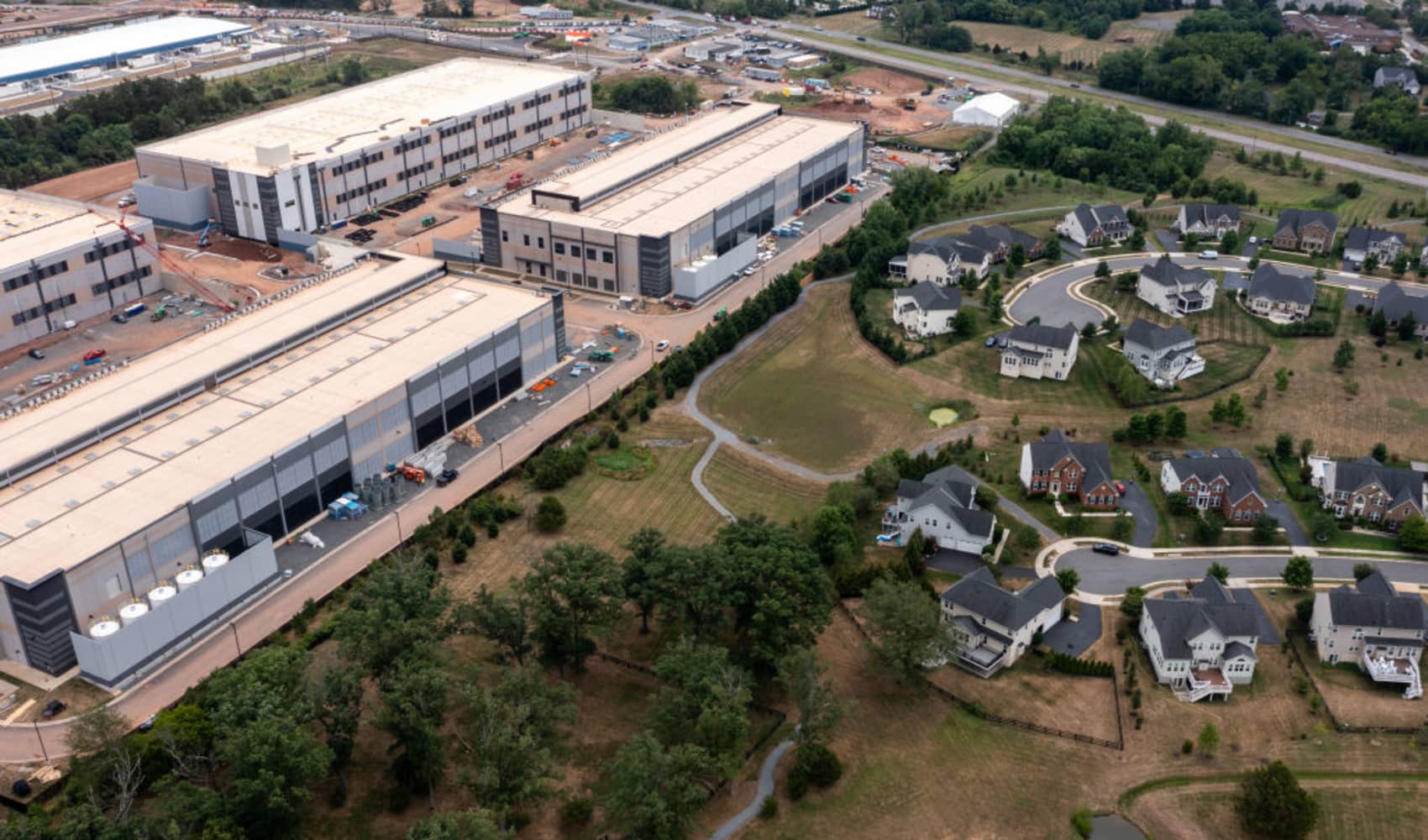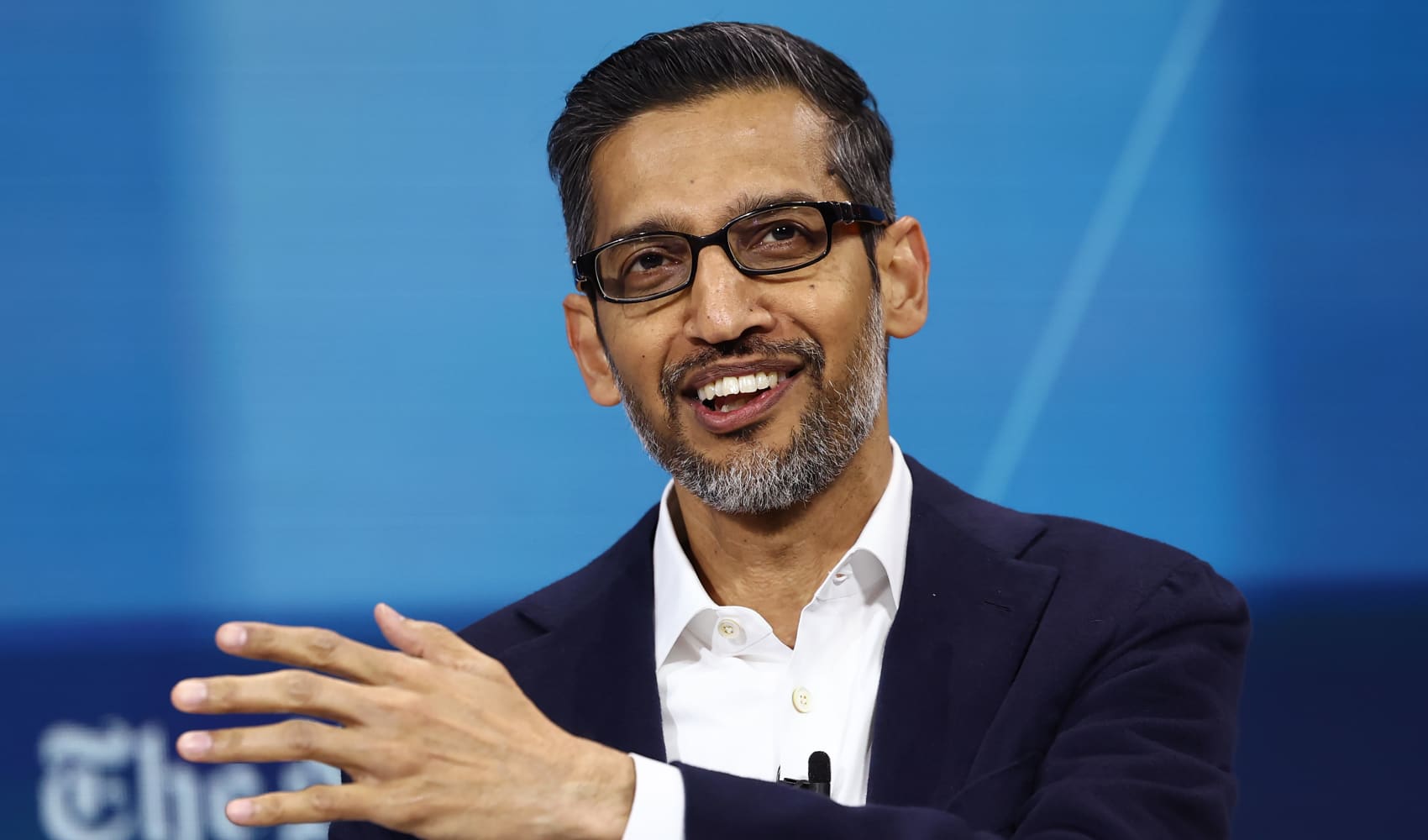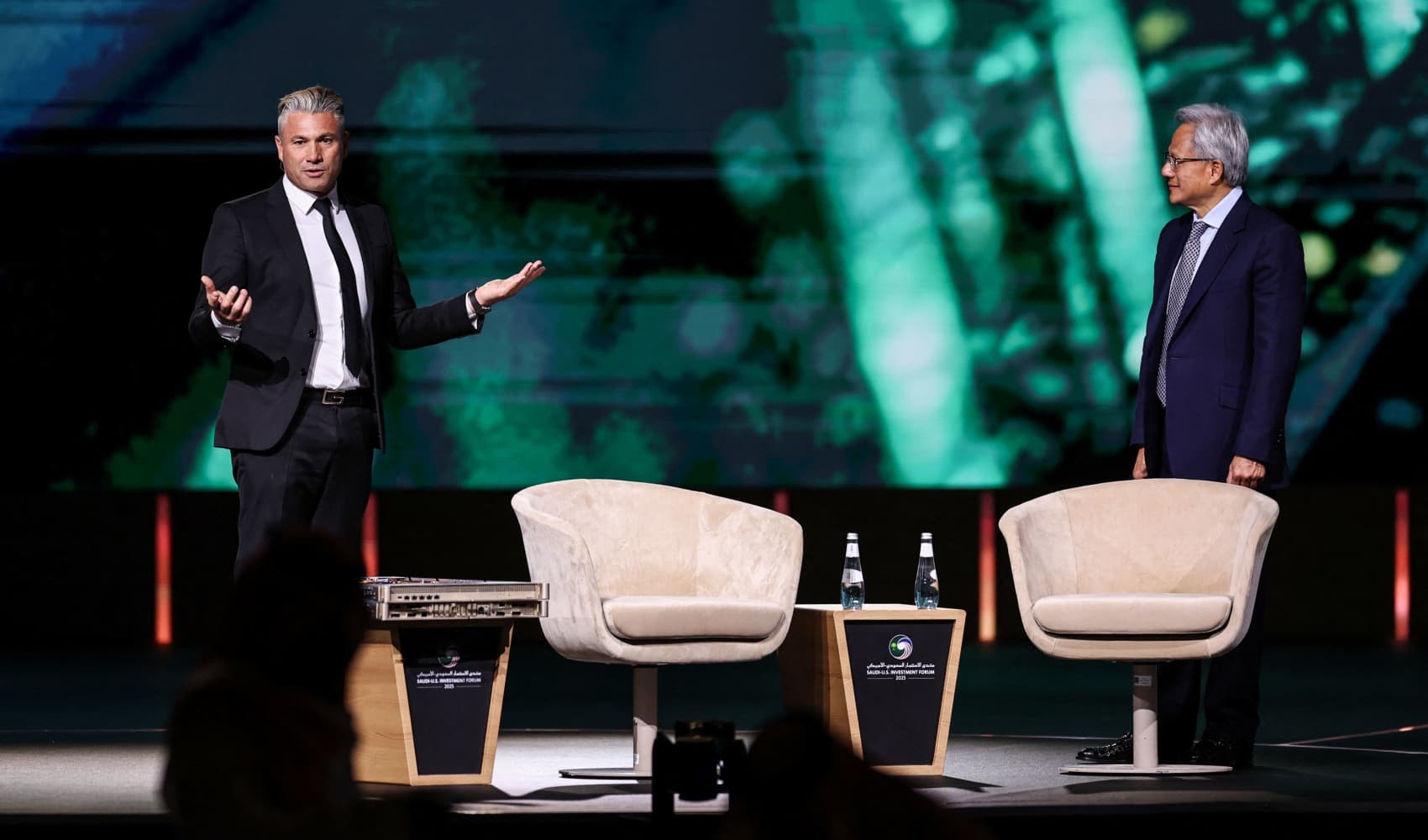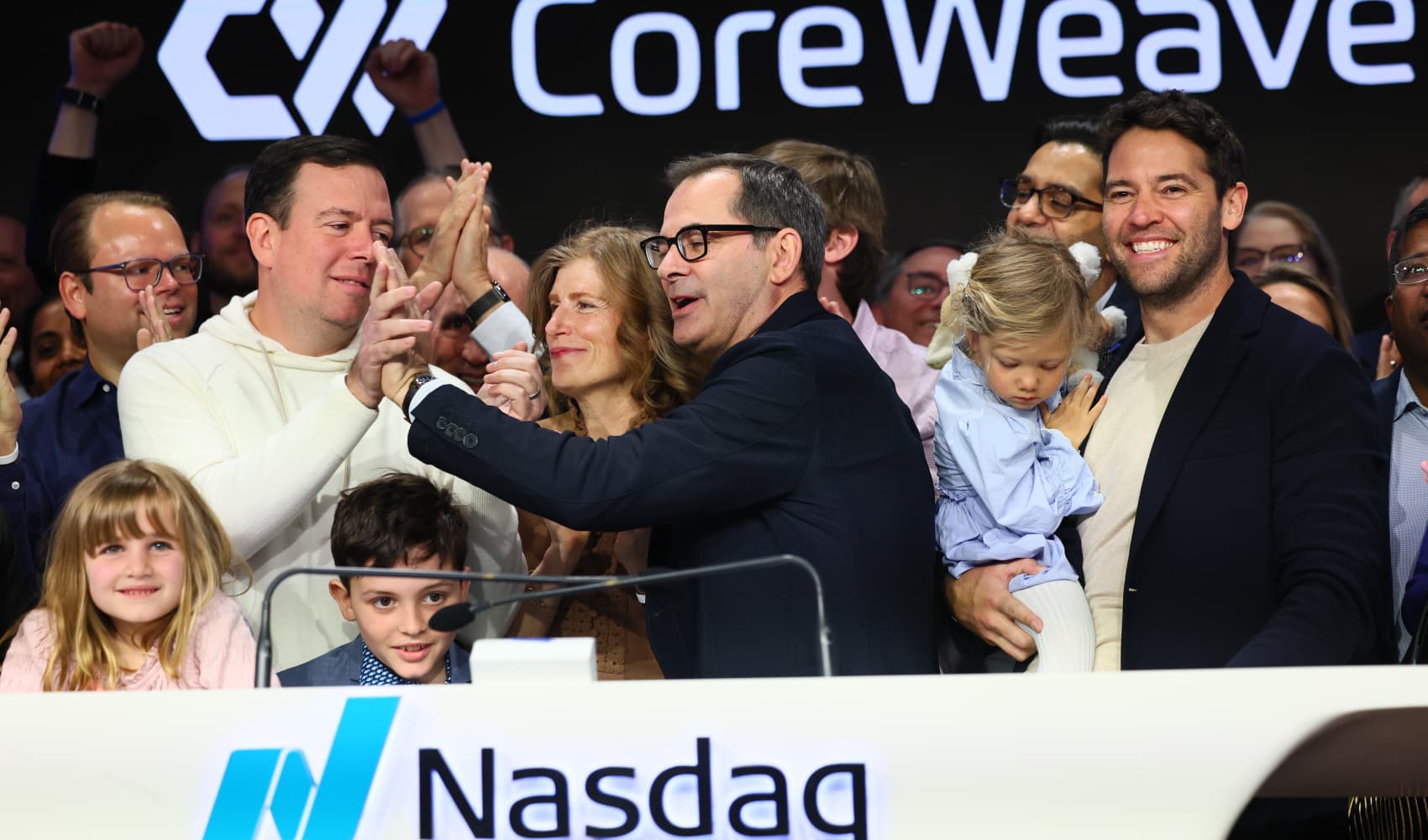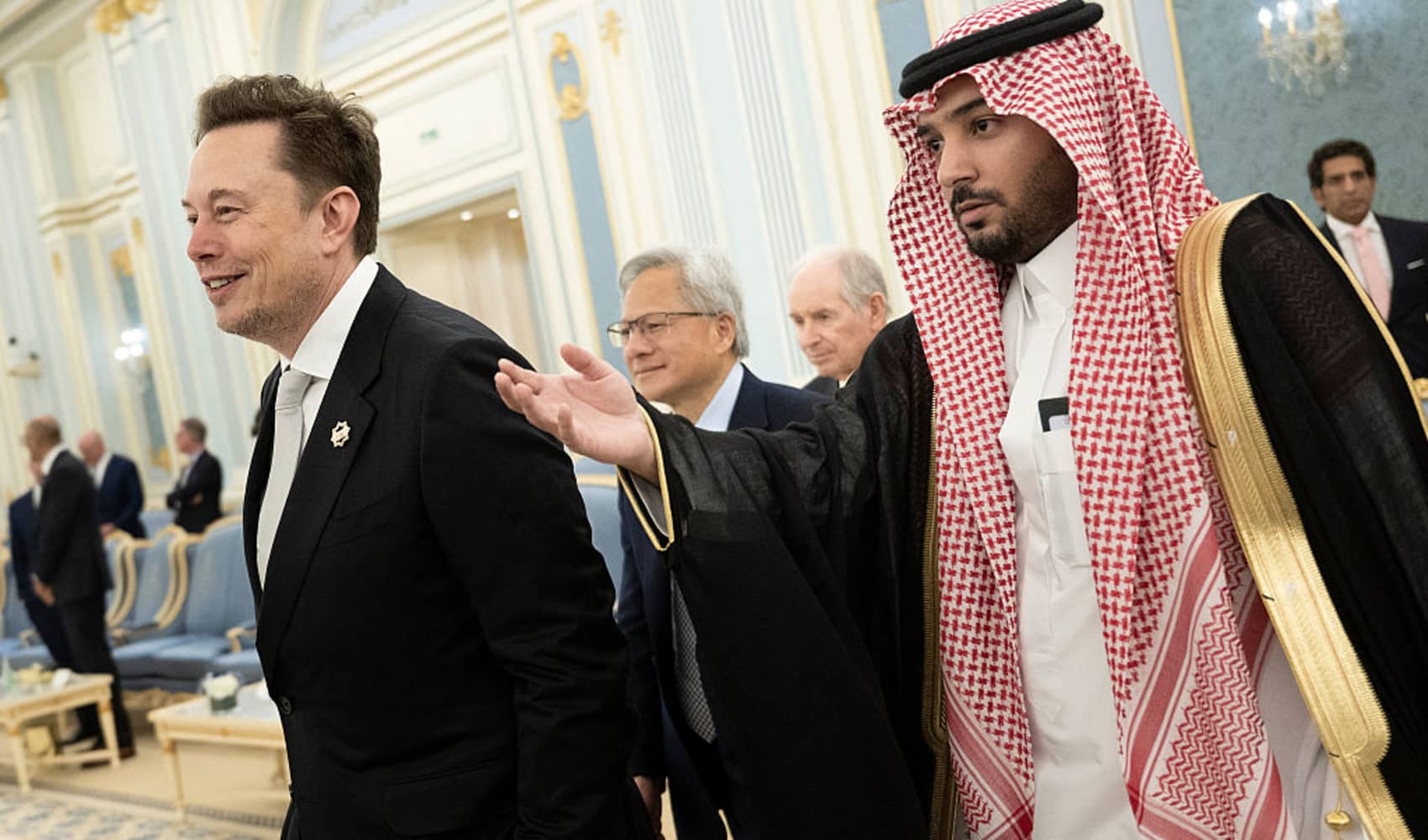AI Demand Soars: Amazon & Nvidia's Data Center Boom
AI Demand Unfazed: Amazon and Nvidia Double Down on Data Centers
Introduction: The AI Data Center Boom Continues
Is the artificial intelligence (AI) revolution slowing down? Are companies tightening their belts and scaling back on their ambitious AI initiatives? According to tech giants Amazon and Nvidia, the answer is a resounding "No!" They are seeing nothing but increasing demand for the data centers that power the AI revolution. This isn't just good news for the tech sector; it's a strong indicator that AI is becoming increasingly integral to our lives, from the apps we use every day to the groundbreaking research that's shaping the future.
The Unwavering Demand for AI Power
The foundation of AI is data – massive amounts of it. To train complex AI models and run demanding AI applications, you need powerful data centers humming with cutting-edge hardware. Amazon and Nvidia are at the forefront of this data center arms race, and their perspectives offer valuable insights into the current state of AI development. Their statements suggest that the AI boom is far from over, and in fact, it may just be getting started.
Amazon's Data Center Expansion: Full Steam Ahead
Amazon's Global Data Center Strategy
Kevin Miller, Amazon's vice president of global data centers, has stated that the company's data center plans have not changed significantly. This means Amazon Web Services (AWS), a dominant player in the cloud computing market, is committed to expanding its data center footprint to meet the growing demand for AI-related services. Think of AWS as the digital backbone for countless businesses, providing the infrastructure they need to run their operations and develop innovative AI solutions. Their sustained investment is a powerful signal of confidence in the future of AI.
No Signs of a Pullback
So, what does "no significant change" actually mean? It indicates that Amazon anticipates continued growth in AI adoption and usage. They aren't seeing any red flags that would cause them to scale back their investments. In fact, it implies that Amazon is strategically positioning itself to capitalize on the ongoing AI boom by maintaining and expanding their data center capabilities.
Nvidia's Perspective: Sustainability and the AI Surge
Nvidia: Fueling the AI Revolution
Nvidia is synonymous with AI. Their GPUs (Graphics Processing Units) are the workhorses behind many of the most powerful AI systems. Josh Parker, Nvidia's senior director of corporate sustainability, has echoed Amazon's sentiment, stating, "We haven't seen a pullback." This further solidifies the notion that the AI data center demand is unwavering. Nvidia's perspective is particularly important because they are on the front lines of AI hardware development, constantly pushing the boundaries of what's possible.
Balancing Power and Sustainability
Parker's title - "senior director of corporate sustainability" - highlights a critical consideration in the AI boom: power consumption. AI models require enormous amounts of energy to train and run. Nvidia's commitment to sustainability suggests that they are actively exploring ways to reduce the environmental impact of AI, potentially through more energy-efficient hardware designs and partnerships with data centers that prioritize renewable energy sources. Can we build a powerful AI future without compromising our planet? Nvidia is betting that we can.
The Implications of Continued AI Data Center Demand
Economic Growth and Innovation
The sustained demand for AI data centers translates to economic growth. It means more jobs in construction, engineering, and IT. It also means increased investment in research and development, leading to even more innovative AI applications. This creates a virtuous cycle where AI fuels economic growth, which in turn drives further investment in AI. Think of it like a snowball rolling downhill, gathering momentum as it goes.
AI's Impact on Various Industries
AI is rapidly transforming industries, from healthcare to finance to transportation. The demand for AI data centers reflects the increasing need for computing power to support these transformations. Imagine a world where AI-powered medical diagnoses are faster and more accurate, where financial fraud is detected and prevented in real-time, and where self-driving cars make our roads safer and more efficient. This is the promise of AI, and it's all powered by data centers.
Increased Competition and Innovation
The AI data center boom is also driving increased competition among cloud providers like Amazon, Microsoft, and Google. This competition benefits businesses and consumers by driving down prices and accelerating innovation. Companies are constantly striving to offer better AI services and tools, making it easier for organizations of all sizes to leverage the power of AI.
The Challenges of Scaling AI Infrastructure
Power Consumption and Environmental Impact
As mentioned earlier, the enormous power consumption of AI data centers is a significant challenge. Finding sustainable ways to power these facilities is crucial to mitigating their environmental impact. This includes investing in renewable energy sources, developing more energy-efficient hardware, and optimizing AI algorithms to reduce their computational requirements.
Data Privacy and Security
AI models are trained on vast datasets, often containing sensitive personal information. Protecting the privacy and security of this data is paramount. Data centers need to implement robust security measures to prevent unauthorized access and data breaches. Additionally, companies need to be transparent about how they collect, use, and protect data.
The Need for Skilled AI Professionals
The AI boom is creating a high demand for skilled AI professionals, including data scientists, machine learning engineers, and AI researchers. Addressing this skills gap is essential to ensuring that the benefits of AI are widely accessible. This requires investing in education and training programs to equip individuals with the knowledge and skills needed to succeed in the AI era.
Looking Ahead: The Future of AI Data Centers
The Rise of Edge Computing
Edge computing, which involves processing data closer to the source (e.g., on smartphones, IoT devices, or industrial equipment), is poised to play an increasingly important role in AI. Edge computing can reduce latency, improve security, and enable new AI applications that require real-time processing. Imagine AI-powered robots working on a factory floor, making decisions instantly without relying on a distant data center.
Specialized AI Hardware
While GPUs have been the dominant hardware for AI, there is growing interest in specialized AI chips designed for specific tasks. These chips can offer significant performance improvements and energy efficiency compared to general-purpose GPUs. We're entering an era of AI hardware diversity, where different chips are optimized for different AI workloads.
Quantum Computing and AI
Quantum computing is a revolutionary technology that has the potential to dramatically accelerate AI. While still in its early stages, quantum computing could unlock new possibilities for AI, enabling the development of more powerful and sophisticated models. The convergence of quantum computing and AI could lead to breakthroughs in areas such as drug discovery, materials science, and financial modeling.
The Importance of Ethical AI Development
Bias and Fairness in AI
AI models can perpetuate and even amplify existing biases in the data they are trained on. Ensuring that AI systems are fair, unbiased, and equitable is crucial to preventing discrimination and promoting social justice. This requires careful attention to data collection, model development, and deployment.
Transparency and Explainability
It's often difficult to understand how AI models make decisions. Increasing the transparency and explainability of AI systems is essential for building trust and accountability. This allows users to understand why an AI system made a particular decision and to identify and correct any errors or biases.
Responsible AI Governance
Developing responsible AI governance frameworks is necessary to ensure that AI is used ethically and in accordance with societal values. This includes establishing clear guidelines for AI development and deployment, as well as mechanisms for oversight and accountability. We need to shape the future of AI to align with our ethical principles.
Conclusion: Powering the Future with AI Infrastructure
Amazon and Nvidia's unwavering commitment to expanding AI data center capacity paints a clear picture: the AI revolution is far from over. The demand for AI power is only increasing, driven by the transformative potential of AI across various industries. While challenges remain, such as power consumption and ethical considerations, the opportunities for innovation and economic growth are immense. As AI continues to evolve, so too will the infrastructure that supports it, paving the way for a future where AI is seamlessly integrated into our lives.
Frequently Asked Questions (FAQs)
Q1: What exactly is an AI data center?
An AI data center is a specialized facility equipped with powerful computing hardware (primarily GPUs) designed to handle the demanding workloads of training and running AI models. Think of it as a digital brain that processes vast amounts of data and enables AI applications to function.
Q2: Why is AI driving up data center demand so much?
AI models, especially deep learning models, require massive amounts of data to train. The more data, the better the model's performance. Training these models requires significant computational power, leading to a surge in demand for data centers with high-performance computing capabilities.
Q3: What are the environmental concerns associated with AI data centers?
AI data centers consume a lot of electricity, and most of that electricity is still generated from fossil fuels. This leads to greenhouse gas emissions and contributes to climate change. There are also concerns about water usage for cooling the data centers.
Q4: How are companies trying to make AI data centers more sustainable?
Companies are investing in renewable energy sources like solar and wind power to power their data centers. They are also developing more energy-efficient hardware and software. Additionally, some data centers are located in cooler climates to reduce the need for cooling.
Q5: How will the rise of AI affect the average person?
AI will have a profound impact on our lives. We can expect to see AI-powered applications in healthcare, transportation, education, and many other areas. While there are concerns about job displacement, AI also has the potential to create new jobs and improve our quality of life. From personalized medicine to self-driving cars, AI will reshape the world around us.
